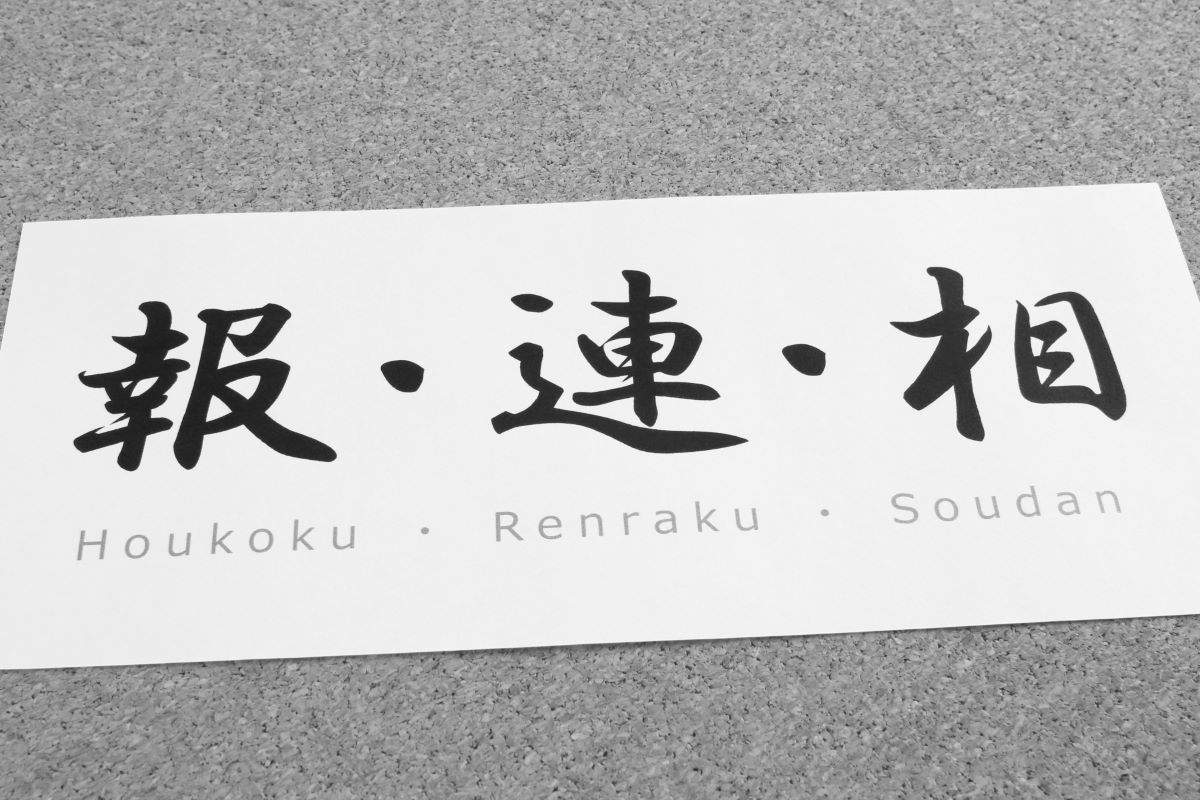Physical Address
304 North Cardinal St.
Dorchester Center, MA 02124
Physical Address
304 North Cardinal St.
Dorchester Center, MA 02124

“Ho-Ren-So,” the abbreviation for Hokoku (Reporting), Renraku (Communication) and Sodan (Consulting), is supposed to form the basis of business communication in Japan. It would not be too much to say that this is the first thing that everybody learns when entering the workforce in Japan. The importance of “Ho-Ren-So” is often taught in business manner seminars for people from abroad working in Japan, although some might mistake the word for the vegetable “horenso (spinach)” when they hear it for the first time. Even after actually learning the concept of “Ho-Ren-So,” many may still wonder why “Ho-Ren-So” is even necessary.
Let us talk about the significance of “Ho-Ren-So” as it is generally understood in Japan. The concept of “a successful business is built on teamwork” generally prevails in Japanese offices. As a result of this, actions such as delays in reporting, failing to communicate or making decisions without first consulting with others are thought to damage teamwork and result in major failures.
In particular, reporting to superiors is considered to be an important duty, as you are expected to report on the progress of your work, alterations to plans and final results in a timely manner. Whenever you have concerns or difficulties during the process of work, you should not fail to consult with your superior.
It is felt that engaging in frequent communication enables you to share information with other employees, which further strengthens the feeling of camaraderie among the staff, while raising awareness about work at the same time. This is generally considered to be the significance of “Ho-Ren-So” in Japan.
It is true, however, that a number of white-collar workers from abroad have doubts about this concept. Indeed, even among young Japanese office workers, the concept of “Ho-Ren-So” is not necessarily openly accepted these days.
“World Business Satellite,” a news program broadcast by TV Tokyo, once focused on individuals from abroad who were opposed to the concept of “Ho-Ren-So” and the disadvantages of the concept as they saw them were introduced. According to these opinions, following the concept of “Ho-Ren-So” excessively would lower an individual’s motivation and productivity, eventually blurring responsibilities.
Many people feel that what is important is the result and do not understand the need to follow the “Ho-Ren-So” code for all processes in detail before achieving the result. As they feel as if they are not being trusted, their motivation can never be increased. Some people also point out that Japanese corporations spend too much time on “Ho-Ren-So,” which lowers productivity as a result, while they would be better off spending more time on activities that would gain actual results, such as visiting clients. Despite the fact that they are supposed to have the authority to carry out certain duties, their sense of achievement for what they have accomplished is diminished by having to fulfill the responsibility of “Ho-Ren-So” and the sense of responsibility for the work itself is also lost as a result.
“Ho-Ren-So” may be a business style that symbolizes Japanese culture, in which great importance is placed on cooperation within a group. This might be a major case of culture shock to people from abroad working in Japan. Indeed, excessive “Ho-Ren-So” does possibly lead to such problems as mentioned above and accordingly Japanese companies should make efforts to address the negative side of “Ho-Ren-So.”
In the meanwhile, as adequate “Ho-Ren-So” generates a dynamic force to lead a business to success, why not pay attention to the positive side of the concept and take advantage of it to improve the quality of your work?